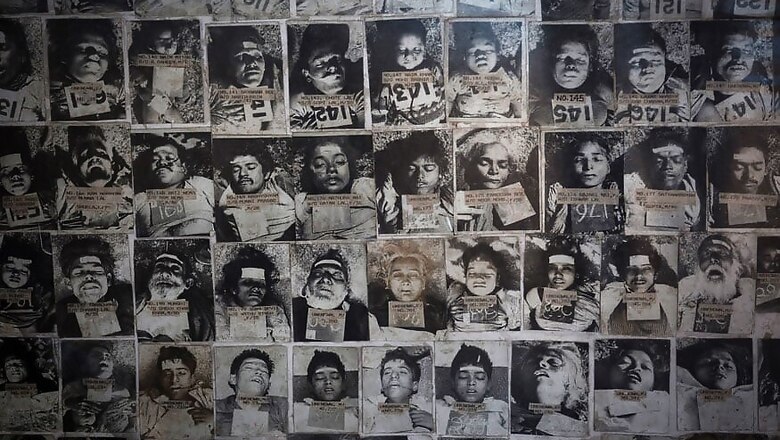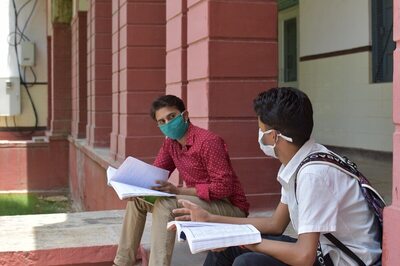
views
December 2-3, 1984.
Bhopal: Hundreds of Bhopal Gas tragedy survivors on Sunday formed a human chain in protest here on the eve of the 35th anniversary of what has widely been acknowledged as the world's worst industrial disaster.
Leaking toxic gas from the now-defunct Union Carbide factory in Bhopal resulted in the deaths of thousands of people and left lakhs maimed on the intervening night of December 2-3, 1984.
The protesters on Sunday said the exposure to the toxic gas and the waste dumped in the premises of the defunct factory continued to cause them health problems, and demanded that Dow Chemicals, the current owner of Union Carbide, pay compensation under the "polluter pays principle".
"Because of reckless dumping of extremely poisonous waste within the pesticide factory till 1984 and outside it in 1996, groundwater has been contaminated in places over four kilometres around it," said activist Rashida Bi, who was accompanied by Champa Devi Shukla, a Goldman Environmental Prize awardee.
"Since 1990, groundwater has been tested some 16 times by government and non-government agencies. These have shown pesticides, heavy metals and poisonous chemicals, including six persistent organic pollutants, at depths greater than 30 metres and distances of several kilometers from the factory," she alleged.
Nawab Khan of the Bhopal Gas Peedit Mahila Purush Sangharsh Morcha said, "According to the latest study by the Indian Institute of Toxicology Research, a Central government agency, the groundwater in 42 communities, with a population of nearly 100,000, is contaminated and continues to spread."
He demanded a comprehensive scientific assessment of the area within 5 kilometres of the factory, and alleged an offer by the United Nations Environment Programme to carry out such a study was rejected by Union Minister Prakash Javadekar.
Khan alleged the Central government was ignoring the issue despite various reports, including one carried out by the state government in 2005, showing residents, who were drinking contaminated groundwater, were suffering from diseases of the eyes, skin, respiratory and digestive systems.
Rachna Dhingra of Bhopal Group for Information and Action said more than 10 thousand families were exposed to contaminated water over 20 years.
"The polluter pays principle which is followed by India and United States of America clearly makes Union Carbide legally liable for clean-up of the soil and groundwater. After taking over Union Carbide in 2000, Dow Chemicals continues to hold an illegal position that it is not responsible for the contamination," claimed Nousheen Khan of Children Against Dow Carbide.
It is the responsibility of the state and Centre to force Dow Chemicals to compensate the victims, she asserted. "Instead, they plan to pour concrete over the site to build a memorial for the victims as cover up for these corporations," she alleged.



















Comments
0 comment